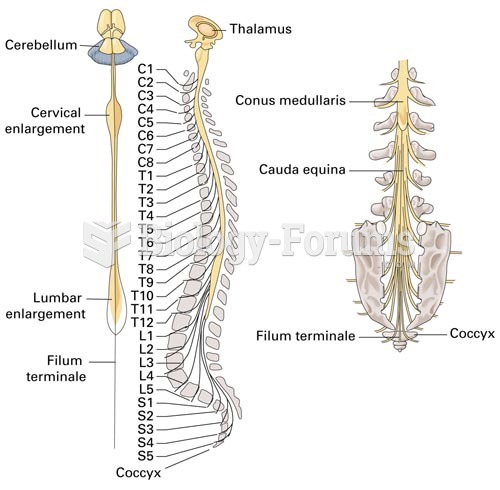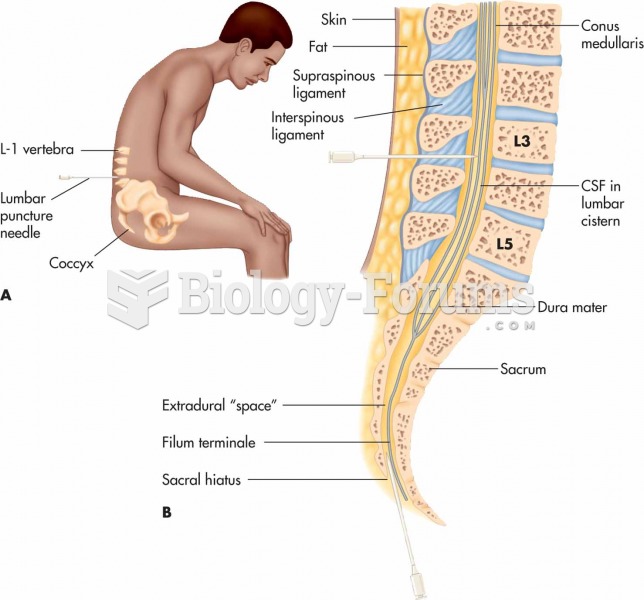|
|
|
Urine turns bright yellow if larger than normal amounts of certain substances are consumed; one of these substances is asparagus.
People with alcoholism are at a much greater risk of malnutrition than are other people and usually exhibit low levels of most vitamins (especially folic acid). This is because alcohol often takes the place of 50% of their daily intake of calories, with little nutritional value contained in it.
The first war in which wide-scale use of anesthetics occurred was the Civil War, and 80% of all wounds were in the extremities.
In 2006, a generic antinausea drug named ondansetron was approved. It is used to stop nausea and vomiting associated with surgery, chemotherapy, and radiation therapy.
The Babylonians wrote numbers in a system that used 60 as the base value rather than the number 10. They did not have a symbol for "zero."
 The Spinal Cord, The Spinal Cord and Spinal Nerves; Close-up of the Caudal Region of the Spinal Nerv
The Spinal Cord, The Spinal Cord and Spinal Nerves; Close-up of the Caudal Region of the Spinal Nerv
 (A) Lumbar puncture, also known as spinal tap; (B) section of the vertebral column showing the spina
(A) Lumbar puncture, also known as spinal tap; (B) section of the vertebral column showing the spina
 Stretch the extensor muscles with flexion at the wrist. Reposition the palm to face the table. Apply ...
Stretch the extensor muscles with flexion at the wrist. Reposition the palm to face the table. Apply ...




